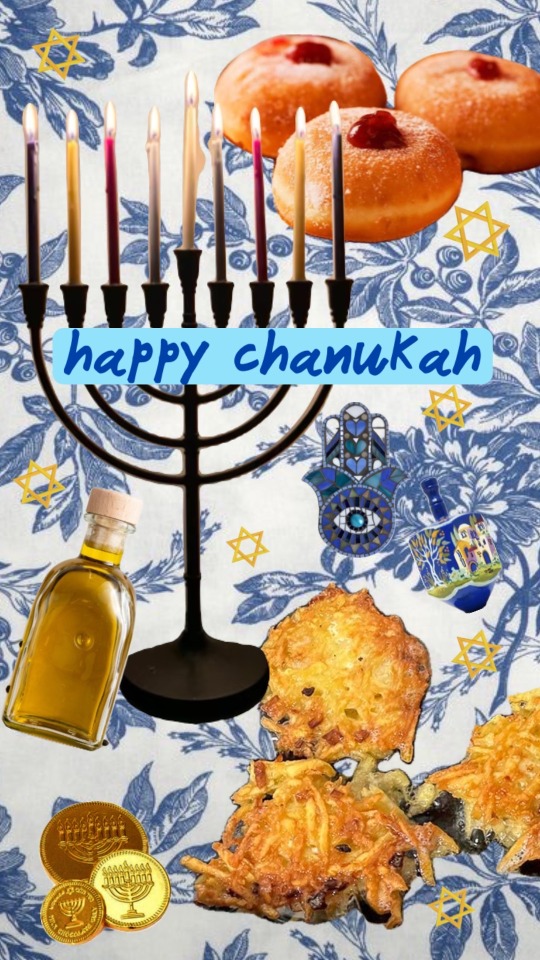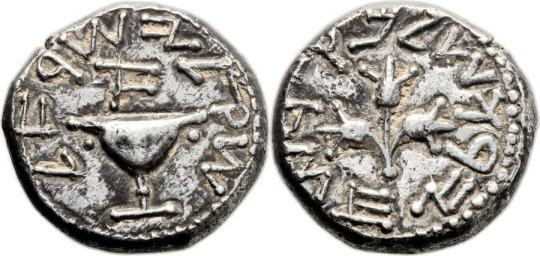(חי af)sharing cultural and historical aspects of judaism ✡︎
Don't wanna be here? Send us removal request.
Text
the juxtaposition between a depressing post on antisemitism and then an ad on a role playing anime game underneath it
1 note
·
View note
Text
Someone sent me an ask about how to avoid antisemitism when talking about what's happening in Palestine, but Tumblr ate it. This is a really important question, because we don't want to fight one oppression while enabling another; we don't want to accidentally foment the conditions that lead to antisemitic violence, and we also don't want to shy away from speaking about Gaza for fear that we're doing so.
Here are my thoughts.
There are a lot of unconscious antisemitic beliefs that people hold, that they may not be consciously aware of. They may have learned these from parents, peers, or society at large. Like any bigotry, a huge part of not being harmful in bigoted ways comes down to learning what unconscious bigotry looks like within you and learning how it is expressed.
Antisemitism is very old, and there are a lot of tropes and beliefs that have developed through the years. Many of these are alive and well, though they may be subtle enough that people don't realize they're carrying them. However, they show up in the way that people speak, especially about Israel and Palestine. Here are some:
1. Jews are overwhelmingly wealthy
2. Jews control the world
3. Jews control a given country (eg the US)
4. Jews are not oppressed
5. Jews are some of the most privileged people in society; more than non-Jewish white people. Jews are white people but even more so.
6. Jews are whiny and complain about their nonexistent oppression too much
7. Jews are sneaky, deceptive, and untrustworthy. They don't speak sincerely or plainly; they have an ulterior motive and are trying to get one over on you.
8. Jews are greedy
9. Jews are really powerful
10. Jews undermine and destabilize movements and countries. (This one connects to 3, 7, and 8).
11. Jews are inherently guilty; a good Jew needs to apologize for being Jewish
12. Jews are bloodthirsty and desire violence against non-Jews
13. A Jew is from somewhere else, and does not belong in the place that they are.
How do these get expressed in the movement? Here are some examples (these are paraphrases and combinations of various things I've seen):
Example A:
"American Jews are complaining about oppression while living in their NYC apartments and taking Ubers. It's ridiculous, so much privilege and entitlement." This one's got 1, 4, 5, 6, and 7.
1: Assumes wealth. Plenty of us can't afford NYC apartments or Ubers!
4, 5, and 6: self-explanatory.
7: Belief that on some level, fear of antisemitism can't really be sincere; we must be talking about it for some other purpose, eg to distract from "real" issues.
Example B:
"The US is funding this genocide because of the influence of Israel and Israel's interests, and the Jewish lobbyists." Employs 3 and 9.
3: The US is doing this because of its own interests; if anything, the US wants to be able to use Israel as a pawn.
9: Imagines Jewish lobbyists as powerful enough to drive US policy. Also forgets how dramatically the US dwarfs Israel in size, money, and power; imagines it's the other way around.
Example C:
"These Israeli first responders are lying about finding mutilated and sexually abused bodies after October 7th. This Israeli girl who was held hostage is lying about having talked to fellow hostages who were sexually assaulted. This Israeli first responder is lying about children having been killed on October 7th."
This is 4, 6, and mainly 7.
7 because it assumes that these people are telling these lies for some nefarious purpose: to garner false sympathy, or worse, to manufacture support for genocide. It cannot be because they are actually telling the truth.
Example D:
"It's suspect if someone talks too much about antisemitism. Or if they correct my misinformation. They are probably a crypto-Zionist. In fact, all of these Jewish tumblr bloggers are crypto-Zionists."
(The first part of this I haven't heard said; but rather it's the unspoken attitude I'm frequently presented with.)
This one has 4, 5, 6, 7 and 10. Mostly 7 and 10.
Beliefs that our goal is to derail pro-Palestine organizing by sewing Zionist beliefs in the movement. That we would be capable of such (9). That it's impossible that we're sincere and we're concerned both about what's happening in Gaza and the everpresent, intangible potent threat of imminent antisemitic violence.
Example E:
"What everpresent threat of imminent antisemitic violence? You're either delusional, too privileged to understand how oppressed you aren't, or lying to some sinister purpose."
The first two (delusional and too privileged) often comes from other Jews, who, yes, can be antisemitic too.
This one has: 4, 5, 6, 7, and 9.
Example F:
"As a Jew I know I am responsible for what's happening in Gaza, and I need to call in my people who deny our privilege and who think they're unsafe."
1, 4, 5, 6, 11. Shades of 10.
Example G:
"Israel is invading Gaza for oil."
8. Also this isn't true.
Example H:
"No Israeli is a civilian. All settlers are guilty, and need to leave."
Technically, it is possible for someone to hold this belief consistently for all settlers worldwide due to stringent decolonial beliefs. However, it frequently is applied only to Israelis. In such an iteration, I think it contains 10, 11, 12, and 13.
Which leads to my next point: Double standards. If something doesn't invoke a particular trope, but views Jewish or Israeli actions more harshly than we'd view the equivalent in any other place or people, to me that's suspect.
For example, relating to the above, if we believe that Truth and Reconciliation is the answer in the US and Canada, but in Israel the answer would be forced displacement of the Jewish population, that would be antisemitic.
Also, if we're able to hold nuance around the idea of refugees to the US and Canada, and understand that they're simultaneously taking part in colonialism while also arriving under duress because they need a place to live, we can extend the same nuance to the idea of Jewish refugees (Holocaust survivors, SWANA Jews, Ethiopian Jews, etc) who have come to Israel.
And, going back to example A, is there any other marginalized group we would say is not actually oppressed because members of it live in NYC and take Ubers? No? Then, it's antisemitic when you say it about Jews.
I also think misinformation about Jewish history and identity is antisemitic. For example, lines of thought that deny our ancestral, historical, cultural, and liturgical connections to the land of Israel/Palestine. One false belief I see a lot is Khazar Theory, popularized by the quack Shlomo Sand. This states that Ashkenazi Jews do not have ancestral origins in what's now Israel/Palestine, but rather descend from a mass conversion of Turkic peoples in the Kingdom of Kazaria. It is not, in fact, true.
Something else along these lines is back-defining origins and land-connection through current events. For example, a white gentile ex-friend of mine shared a post stating that because the IDF, as well as settler extremists, destroy Palestinian olive trees (an egregious act, in my opinion, as well as against Jewish law), this means we are not native to the land. While I understand the term native is complex and this might have been an attempt to denote our positionality as colonizer in a colonizer-indigenous dynamic, the framing of the post led me to believe that, actually, the post was using these actions to prove that we do not actually originate from the land.
Destroying Palestinian olive trees is an act of great violence against the land, against the Palestinian people, and against our own history, culture, and religious traditions. However, it does not change the historical fact of our origins or ancestry, nor the fact the our religious traditions are deeply intertwined with the seasons, climate, and agriculture of Israel-Palestine, even when that puts them out of sync with the seasons and climate of wherever we live in Diaspora.
I hope this is helpful. This is a really hard time for so many of us, and I know it can feel like derailing to focus on antisemitism right now, and to focus on the potential of future violence when the people of Gaza are experiencing actual extreme levels of violence right now. But if we truly believe that none of us are free until all of us are free, then fighting antisemitism has to be part of our collective liberation. We cannot and should not fight genocide by engaging in oppression. Speaking up for Gaza and Palestine does not have to mean fomenting conditions that put Jews in danger of bigotry and violence. The world we're building is one where seeing your trees destroyed, or your family killed, or your home receding into the distance as you are forced to leave is but a distant memory. For Palestinians, and for Jews, and for everybody on this Earth.
4K notes
·
View notes
Text
it’s the last night of chanukah! did you know that when deciding how to light the chanukah candles (increasing or decreasing), beit shammai and beit hillel had opposing views?
beit shammai and beit hillel were two main schools of thought within the ancient jewish legal tradition, who were tasked with interpreting jewish law and scriptures.
beit shammai focused on the days remaining of chanukah (starting at 8 and decreasing) while beit hillel views the increasing light as the growing holiness + celebration of the miracle of the oil. of course, beit hillel is more widely accepted today, however this doesn’t make beit shammai’s interpretation incorrect and both have valid reasons (see link below to read more about it). have a happy chanukah and happy holidays 🩵

hillel and shammai on chanukah lighting: https://www.ou.org/holidays/hillel_and_shammai_two_opinions/
5 notes
·
View notes
Text
sent my mom a picture of my chanukiah and the bowl piece from my bong decided to make herself known for some reason ! i’m afraid
#i’m totally fine#i literally live in my own apartment why am i scared#my mom already knows i smoke what is my problem#literally my fault#the one time i didn’t check the picture for contraband??? okay
1 note
·
View note
Video
my favorite chanukah tradition is coming across this video every year
410K notes
·
View notes
Text
It is deeply concerning that there are a lot of you who seem to believe that antisemitism started and ended with the Holocaust.
331 notes
·
View notes
Text
Them:
How often do you think about the Roman Empire?
Me, an Israeli Jew spending every single day of my life paying the price for the Roman Empire's actions 2000 years later:
Occasionally.
1K notes
·
View notes
Text
holy shit that is disgusting but i’m not surprised at the lengths people would go… the shema is an ancient prayer jewish people say to announce g-d’s oneness. it’s existed in our texts since biblical times, and honestly i feel silly even defending this because this prayer has been uttered for millennia. like do people think it was invented in 1948?? insane. the worst part is all of this can be easily searched online… in a world where we’re blessed with technology and easier-accessible information i am shocked at how little it’s being used. i feel your pain :/ ♡
the shema. i can’t fucking believe those insane antisemtic monsters added the shema to the list of “evil zionist things”. i’m truly overwhelmed. like i might just break down and cry for the first time since october.
the shema is our most important prayer. above all else. you say it before bed, you say it a few times during every day services. you say it before you die. it holds the highest spot.
israel, in the context of the prayer, means the jewish people. yes, those words can be synonymous in the context of the bible. you say “hear us,”. that’s it. that’s all it is. how dare you twist and burn our religion like that. how fucking dare you.
1K notes
·
View notes
Text
chanukah !!
chanukah is coming up! it’s a jewish holiday (can be seen spelled several different ways such as “hanukkah”) that commemorates jewish resistance to assimilation.

in the second century bce, judea, the land where jewish people’s ancestors resided, were subjected to pressure from the greeks to accept their culture and beliefs (during this period, judea was ruled by the seleucids, which are the syrian-greeks).
you may have not heard of antiochus IV, the successor of alexander the great, who conquered judea (along with syria and egypt). while alexander allowed the people under his control to continue observing their religious traditions, antiochus was much more oppressive. he massacred jews and prohibited the practice of judaism, as well as requiring the sacrifice of pigs at the holy temple (pigs aren’t kosher and therefore it is sacrilegious to sacrifice them).
a jewish army led by judah the maccabee revolted against the assimilation of hellenistic jews and the oppression of the seleucid greek government. they miraculously defeated the seleucid army and drove them off the land. jews reclaimed the holy temple in jerusalem and “rededicated” it (as it was desecrated by the seleucids). the word chanukah means “dedication” because of this event.
it is said that when the jewish people went to light the temple’s menorah, they only find one cruse of olive oil that was untouched by the seleucids. thus, they let the menorah with that one-day supply and it lasted for eight days. this story gives reasoning as to why we light our chanukah candle on the chanukiah (a 9-branched menorah)* every night for eight nights. it’s also why chanukah is also known as the festival of lights.
so today, other than lighting the candles, we also eat foods that are fried in oil such as latkes (potato pancakes) and sufganiyot (jelly donuts). another popular tradition is to play with the dreidel, which is a (typically wooden) four-sided spinning top, with a hebrew letter on each side (נ, ג, ה, ש; nun, gimel, hey, and shin). each letter represents an action that the spinner has to do. it’s sort of a gambling game and typically uses chocolate gelt (those chocolate coins covered in gold foil) as currency.

* why are they 9 branches when we light the candles for eight night? because the ninth candle is in the middle and known as the shamash, or the heper candle. it is the candle that is lit first and used to light the other candle. each night’s new candle is added from right to left, while we light them from left to right.
sources:
https://www.chabad.org/holidays/chanukah/article_cdo/aid/102911/jewish/What-Is-Hanukkah.htm
https://www.jewishvirtuallibrary.org/hannukah
https://www.nationalgeographic.com/history/article/history-of-hanukkah#:~:text=Hanukkah%2C%20which%20means%20%E2%80%9Cdedication%2C,Temple's%20candelabrum%20for%20one%20day.
hope those who celebrate have a happy chanukah, and happy holidays to the rest of you lovely people <3
29 notes
·
View notes
Text
we're literally here like HEY GUYS its us the Jews and we were exiled from our homeland and since then we've been outsiders everywhere we go and dealt with expulsions and genocide because we were always at the whims of other people so a lot of us decided we wanted to go back to where we came from because it has always been really important to us and people are just like: we don't care! you have no connection to the land! it's all ancient history, it happened too long ago and then they think that THEY are all about peace, and justice and freedom and self determination all while denying even the concept of that to an entire ethnoreligious group.
1K notes
·
View notes
Text
pomegranates in judaism
pomegranates have deep significance within judaism. they are thought to have 613 seeds, similar to the 613 mitzvot (commandments) that observant jews adhere to. of course, there aren’t necessarily 613 seeds in every pomegranate let alone one, this is just and old-age theory that is shared for historical/nostalgic/religious reasons.
rosh hashanah
pomegranates are often the fruit of choice of a rosh hashanah*** tradition of eating a “new fruit.” a new fruit is a fruit someone hasn’t eaten in a long time. in sephardic*** tradition, it is customary to have a rosh hashanah seder***, in which a pomegranate is one of the foods incorporated into it.
jewish texts
pomegranates are also mentioned in jewish texts, as well as being listed as one of the “seven species”***:
a pomegranate was one of the things brought back by the spies who scouted the land of canaan*** (torah, numbers 13:1-15:41)
pomegranates decorate the robes of a high priest (torah, exodus 27:20-30:10)
a wife of a rabbi disguises herself as a sex worker and seduces him, demanding a freshly picked pomegranate as a form of payment (talmud, kiddushin 81b)
many judaica*** is adorned in pomegranates, such as torah scrolls, mezuzot***, kippot***, candle holders
coins
pomegranates are found on ancient judean coins. recently, a coin was discovered dated to the bar kokhba revolt*** in 132-136 CE.

hope you learned something new ♡
*** glossary
rosh hashanah: a jewish holiday celebrating a new year
sephardic: jewish diaspora population that has ancestors who have lived in the iberian peninsula
seder: jewish ritual service + ceremonial dinner, usually observed on pesach (passover) but also observed on rosh hashanah by sephardic jews
seven species: seven products that are listed in the torah as being special types of species; it includes wheat, barley, grape, figs, pomegranates, olive (oil), and date (date honey)
judaica: jewish literature, customs, culture (examples include mezuzot, kippot, menorah, candles used for jewish observances, etc.)
mezuzot (singular → mezuzah): a small decorative case that holds a parchment with religious writing; placed on the doorpost of jewish homes
kippot (singular → kippah): also known as a yarmulke or skullcap, it is circular in shape and traditional placed on the head of jewish men, but women and gender non-confirming folks wear them as well
bar kokhba revolt: large-scale armed rebellion/war led by jews against the romans rule of their land
sources
https://www.myjewishlearning.com/article/9-jewish-things-about-pomegranates/
read about the judean shekel: https://www.timesofisrael.com/ancient-shekel-sells-for-1-1-million/

38 notes
·
View notes
Text
cannabis used by ancient jews
some unidentified spots on stones that were dark and burnt-looking were found at a judahite*** shrine in tel arad*** in the 1960s. newer research from 2020 found cannabinoids such as:
thc, cbd, and cbn
terpenes and terpenoids
researchers found that this residue is more specifically a mixtures of animal dung with cannabis, enough to get those breathing in its fumes ”high”. animal dung was used to burn cannabis and incense such as frankincense.

quick facts
→ shrine dates to around 760-715 BCE → stones with the cannabis residue was found at the entrance of the shrine’s inner sanctum, known as the “holy of holies”*** → this was the first time cannabis has been found in the ancient near east → these findings add to our understanding of arad altars in judah during the iron age
*** glossary
judahite: somebody who was a member of the tribe of judah
tel arad: archaeological mound site located west of the dead sea, broken up into a lower part and upper section on a hill
holy of the holies: considered the most sacred part of the jewish temple, where entry was forbidden except by the high priest on yom kippur
hope you learned something new <3
sources
https://www.tandfonline.com/doi/abs/10.1080/03344355.2020.1732046
https://www.smithsonianmag.com/smart-news/cannabis-found-altar-ancient-israeli-shrine-180975016/
https://www.chabad.org/library/article_cdo/aid/144745/jewish/The-Holy-of-Holies.htm
a read on tel arad: https://en.wikipedia.org/wiki/Tel_Arad

8 notes
·
View notes